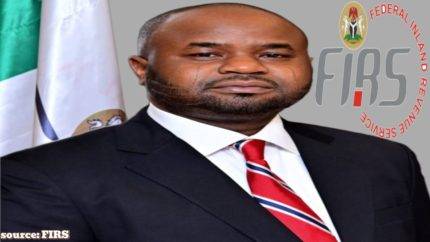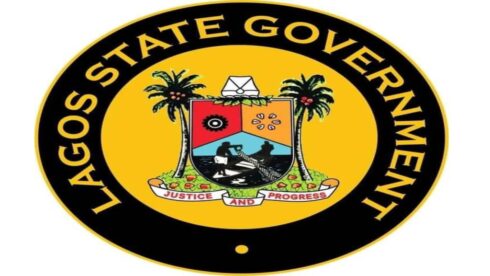The N2.59 Trillion Tax Credit Scheme, Evaluating Criticisms and Government Response
Introduced amidst the administration of President Muhammadu Buhari in 2021, the N2.59 trillion Tax Credit Scheme has sparked intense debate, notably drawing criticism from Zaccheus Adedeji, Chairman of the Federal Inland Revenue Service (FIRS). Adedeji’s dissent revolves around the perceived legal ambiguity of the scheme and its departure from FIRS’s primary function of tax collection and remittance to the federation account. Particularly contentious is the allocation of funds for road construction, a domain traditionally overseen by the Ministry of Works, raising questions about the scheme’s adherence to legal frameworks, notably Executive Order 7 of 2021, which delineates responsibilities for infrastructure development.
In response to Adedeji’s concerns, the Federal Government faces mounting pressure to reassess the Tax Credit Scheme’s alignment with legal mandates and strategic objectives. Adedeji’s emphasis on FIRS’s core role underscores broader debates about governmental jurisdiction and fiscal responsibility. Balancing the imperative for infrastructure development with procedural integrity, the government must navigate intricate legal terrain while addressing the divergent perspectives shaping discourse on taxation and public expenditure.
Reevaluating the Tax Credit Scheme, Assessing Effectiveness and Legality
The Tax Credit Scheme, initially conceived to propel nationwide road construction, has recently encountered scrutiny over its execution and management. Adedeji’s analysis brings to light the imperative to reassess its efficacy and legal standing, stressing the importance of adhering to due process and governmental directives. Despite its intended purpose of expediting road reconstruction or rehabilitation, questions arise regarding its actual impact and compliance with regulatory frameworks.
The involvement of the Nigerian National Petroleum Company Limited (NNPCL) in overseeing the Tax Credit Scheme adds a layer of intricacy to its administration. Disclosure of specific details by NNPCL regarding a $3.3 billion loan aimed at stabilizing the Naira underscores the pressing need for transparency and accountability in the scheme’s implementation. To ensure the scheme aligns with its intended objectives and operates within legal bounds, robust measures for oversight and reporting mechanisms must be established to instill confidence and foster trust among stakeholders.
Senate Committee on Finance Summons FIRS and NNPC Leadership to Clarify Tax Credit Scheme
In a decisive move led by Senator Sani Musa, the Senate Committee on Finance has extended invitations to both the Federal Inland Revenue Service (FIRS) and the Nigerian National Petroleum Corporation (NNPC) management. The primary agenda? To shed light on the intricate workings and repercussions of the Tax Credit Scheme. Heightened by concerns expressed by committee members regarding the dilapidated state of Federal Roads, the inquiry delves deep into the scheme’s efficacy and its tangible impact on national infrastructure.
During Adedeji’s appearance before the committee, a pivotal moment unfolds, providing a platform to articulate concerns and advocate for a thorough reevaluation of the scheme’s trajectory. His stark allegations of the scheme’s illegitimacy and its diversion from the core mandate of the FIRS serve as a clarion call for institutional realignment and strict adherence to legal protocols. As the discourse unfolds, it becomes increasingly evident that the alignment of institutional objectives and unwavering commitment to legal frameworks are imperative for fostering sustainable economic growth and equitable development.
Disapproval and Call for Action
Adedeji reiterates FIRS’s stance on the scheme, emphasizing the need to halt its continuation in its current form. He underscores the importance of redirecting efforts towards proper channels, advocating for collaboration with the Ministry of Works to address road infrastructure challenges effectively.
The upcoming meeting between FIRS, the Central Bank of Nigeria, and the Ministry of Works signals a proactive approach towards rectifying the scheme’s shortcomings. Adedeji’s call to “toe the right path” reflects a commitment to upholding legal and procedural integrity in governmental initiatives.
Legal and Procedural Concerns
Adedeji’s critique extends beyond the scheme’s execution to encompass broader legal and procedural concerns. His assertion that the mandate of FIRS does not include the execution of the Tax Credit Scheme highlights discrepancies in governmental roles and responsibilities.
The emphasis on adherence to due process and proper governance reflects a commitment to accountability and transparency in public administration. Adedeji’s call for alignment with core mandates underscores the importance of institutional integrity and legal compliance in governmental initiatives.
Path Forward and Reevaluation
The upcoming meeting between FIRS, the Central Bank of Nigeria, and the Ministry of Works presents an opportunity to reevaluate the Tax Credit Scheme and chart a more sustainable path forward. Adedeji’s insistence on “not continuing in the wrong trajectory” underscores a commitment to course correction and effective governance.
By engaging in dialogue and collaboration with relevant stakeholders, FIRS aims to address concerns surrounding the scheme and ensure alignment with legal frameworks and institutional mandates. Adedeji’s advocacy for a holistic approach to road infrastructure challenges reflects a commitment to effective governance and public service delivery.
Table of Contents
Discover more from OGM News NG
Subscribe to get the latest posts sent to your email.













